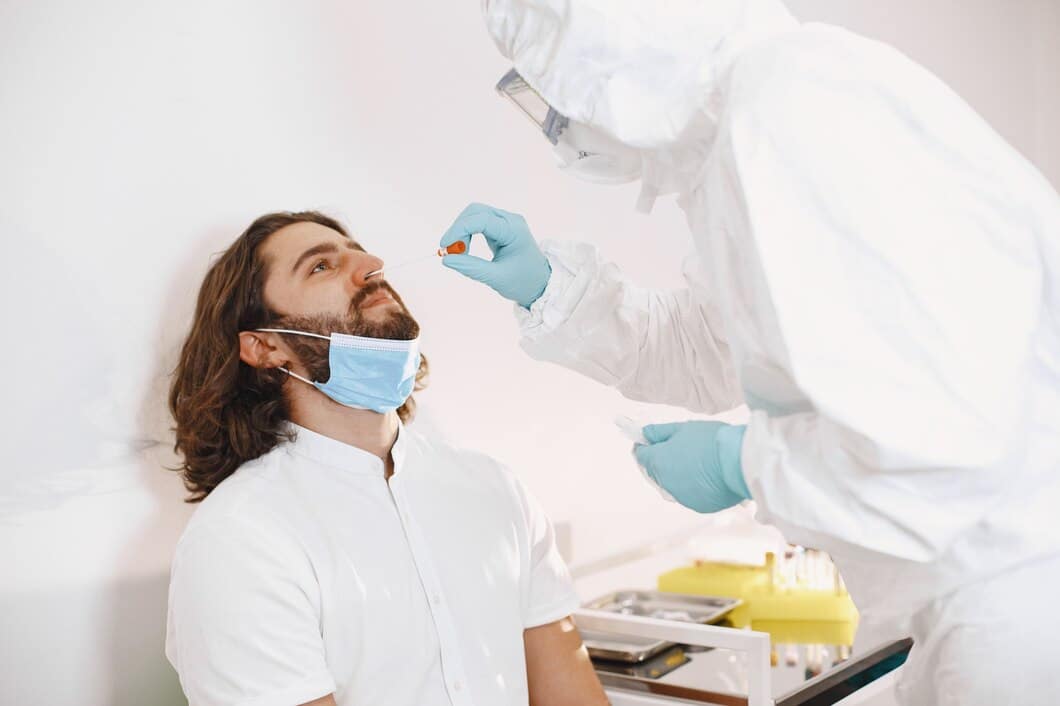Table of Contents
ToggleHow Regular Physicals Help to Achieve a Healthy Living
Your health is just as important as anything, perhaps more than anything else, and one way in which you take care of that is by visiting a physician for physical examinations. It is understandable that check-ups can be occasional, but booking regular physicals ought to be in your long-term health care plan. For people who live in the USA, regular appointments with a medical provider like Absolute Urgent Care are resourceful for early screening, disease prevention, and health care as a whole.
The blog post would explain the rationale for taking a regular physical along with the benefits that come with regular physicals and how they help in achieving the long-term goal of a healthy living. Knowing the importance of physical exams, you will be able to better yourself, take power into your own hands, and improve your overall standing
What Is A Regular Physical Exam?
A physical exam, also called a check-up, is one of the core functions. Some people call it an annual check-up or an annual mechanical appraisal. Using this method, one can be tested to detect if there are any abnormalities present in the individual’s body with an aim to treat any such issues before they become worse. Typically entails a lifestyle questionnaire, a full medical history, and evaluation of vital parameters such as temperature, heart rate, and blood pressure, as well as screening and other tests.
Depending on the individual’s age and sex, as well as familial predisposition and risk factors, a physical may or may not be performed. As a reward, adult patients are encouraged to perform the examination at least once a calendar year. Nevertheless, based on the patient’s state of health, the physician may suggest more timely exfoliation.
Detecting Health Problems Earlier On
Regular physical exams are one of the techniques that allow for more rapid identification of health issues before the onset of dangers or signs of that issue. Severe conditions include a myriad of diseases like hypertension, hypercholesterolemia, diabetes, and even some kinds of cancers where no definitive symptom can be seen prior to it. That is why one must schedule a physical exam regularly to treat such cases rather easily as complications follow them less often.
Blood sugar levels, cholesterol levels, and glucose levels are tests that form part of the yearly physical that individuals undergo yearly. This assessment would nip in the bud potential risk factors such as diabetes or kidney problems and heart disease from fully developing.
Moreover, if one were to take a physical exam, such weight problems, abnormal pulses, and joint pains may require medicament evaluation. With both being proactive solutions, timely treatment ensures that it is more effective and the health problem does not escalate further.
Routine Scrutinies And Preventative Health Care Services
Taking preventative measures is more effective than trying to cure a disease. Not only striving for a healthy lifestyle but annually getting check-ups and starting routine visitation to the physical healthcare provider can maintain your well-being and can potentially prevent various health issues from developing or getting worse.
To expand on this, when someone has their routine check-up, doctors would suggest vaccinations to guard against flu, pneumonia, or shingles. There are also other vaccines that deal with breast cancer, lung cancer, or skin cancer that a person can obtain. Expectantly, based on their warning statements such vaccines will progressively diminish the occurrence of chronic diseases.
In addition to immunisations and screenings, doctors can assist patients in adopting healthy habits. In this context, it is also essential to shed some light on physical activity, nutrition, stress, and sleep hygiene and their role in wellness.
Managing Chronic Disease
A chronic illness like asthma, arthritis, diabetes, or hypertension may require patients to have regular check-ups. Such conditions need to be monitored and managed to avoid complications and a health professional can keep track of your health and adapt the treatment as required.
An example can be given of an individual with hypertension, who needs regular monitoring of his blood pressure. Similarly, patients with diabetes will also require blood sugar tests from time to time to evaluate their management plan. Single check-ups can let the doctors know how the patient’s health is changing over time and suggest measures accordingly for their health maintenance.
Managing chronic diseases with your healthcare provider will prevent unnecessary hospitalisations, minimise complication rates, and increase the patient’s quality of life
Tracking Mental and Emotional Health
Regaining health does not limit it to just being fit physically; it also includes our mental and emotional state. It is seen too often that people omit discussing their mental health with their medical consultant; however, every annual health examination happens to be an ideal occasion to do this.
During physical examination, the doctor may inquire about your emotional state, the amount of stress you have accumulated, your mood and other such nuances. They may check for depression, anxiety and other behavioural anomalies. When necessary, they can either manage the treatment of stress, sleep, emotional coping or provide a referral to a specialist who can.
Equally important in this regard is the mental side: addressing issues of this nature at an early stage facilitates enhancement of the functional level and improvement of psychosocial adjustment and prevents more complicated forms of the condition from developing
Creating a Context Around Your Specialist
Call it an advantage or a disadvantage, but an annual health examination helps in building a relationship with your practitioner. As time progresses and a bond of confidence builds, your medical practitioner would be aware of your medical history, how you lead your life, or any concern that you might have. And this would always help your physician in making a more judicious recommendation that is more suited to you.
Moreover, arranging for regular check-ups creates a framework through which the patient’s follow-up can be ensured. If complications do develop before the next appointment for a schedule, the patient will have a doctor who understands their record and is therefore able to solve the issue promptly. You certainly can have that more effective engagement with your provider, which ultimately leads to better care for your health.
How Long is a Physical Evaluation
Although the list of components in a physical exam may change as a person grows older and due to health considerations and other factors, most check-ups would take into account certain things, such as the ones provided below:
- Vital Signs Check: At this instance, the physician will request patients to provide their heart rate, blood pressure and temperature as part of a routine procedure.
- Physical Examination: It includes the routine check of the patients’ body including ears, eyes, nose, throat, lungs, heart, abdomen, joints, etc. In order to identify various ailments, such as skin cancer, it seems a common practice for the physician to scan the skin for any anomalies, like moles or rashes.
- Screenings: Certain blood tests and screenings may be performed to determine cholesterol and blood sugar levels and the normal functioning of certain organs. In case these screenings have been missed, most probably, they will be called for in the course of a cancer check-up that is associated with breast or colorectal cancer.
- Immunisations: The doctor will check whether your immunisations are current. This is even more crucial for senior citizens and patients with medical risk factors.
- Health History Review: The physician would be interested in your medical conditions or that of your family and would want to talk to you about your lifestyle relating to food intake, exercise and stress management.
- Preventive Health Counselling: The physician will orient you on aspects that may save you from getting sick, avoid unnecessary complications, and enhance your general health. Such may involve eating healthily, exercising, controlling weight, and maintaining mental focus.
The Bottom Line – Make Health A Priority by Having Regular Physicals
When considering the care of your body, it is essential to remember that each part of it, including the internal organs, tissues, and muscles, should be periodically reviewed. Issues of early diagnosis, prevention, flexibility in case of chronic illnesses, and maintenance of mental health are very important and the physician’s examination addresses all these.
If you have not had a physical in the last 12 months, it would be prudent to make an appointment with a provider such as Absolute Urgent Care. Such regular engagements help in the early detection of medical problems, offer reassurance on health status, and assure the individual that they are taking suitable measures to keep illness at bay.
Making a habit of visiting the doctor for regular check-ups ensures that your overall health is not neglected. Don’t wait for something to go wrong—make a periodic physical examination a core part of your healthcare routine. Your future self will appreciate it. Also, do visit the doctor for regularly scheduled appointments as this is quite beneficial for you in the long run.






















